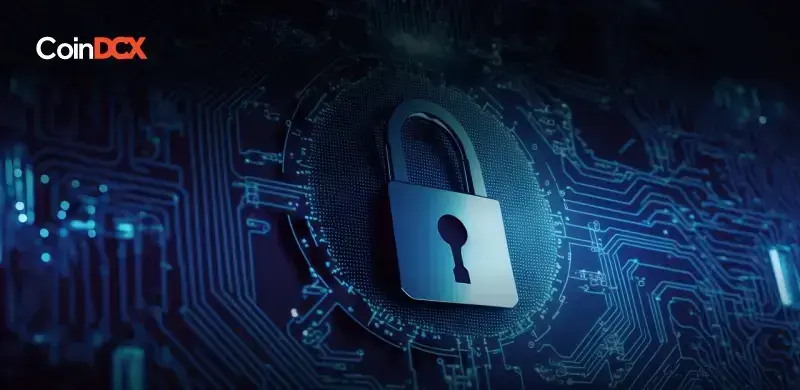Table of Contents
ToggleIntroduction:
In today’s digital age, where the reliance on online transactions continues to grow, ensuring the security and integrity of data is of paramount importance. Blockchain technology has emerged as a groundbreaking solution that offers enhanced security and transparency. This article explores the concept of blockchain security, the difference between public and private blockchains, various types of blockchains, challenges faced in securing blockchain networks, methods used by fraudsters to attack blockchain technology, examples of successful blockchain security implementations, essential tips for enhancing blockchain security, and concludes with frequently asked questions.
Key Takeaways:
- Blockchain security plays a vital role in protecting digital transactions and maintaining trust.
- Public and private blockchains differ in terms of access control and governance.
- Different types of blockchains, such as permissionless, permissioned, and consortium, cater to diverse use cases.
- Implementing effective security measures is crucial to combat the challenges associated with blockchain technology.
What is Blockchain Security?
Blockchain security refers to the set of measures and protocols designed to safeguard the integrity, confidentiality, and availability of data stored within a blockchain network. It ensures that the distributed ledger system remains resistant to tampering, unauthorized access, and fraudulent activities. By utilizing advanced cryptographic algorithms, consensus mechanisms, and decentralized governance models, blockchain technology provides a robust security framework.
Difference between Public and Private Blockchain:
Public Blockchain:
Public blockchains, like the Bitcoin and Ethereum networks, allow anyone to participate and validate transactions. These networks are decentralized and offer transparent visibility to all participants. Security in public blockchains is achieved through a consensus mechanism known as proof-of-work (PoW). The major advantage of public blockchains is their openness, allowing anyone to verify the accuracy of transactions and ensuring high transparency.
Private Blockchain:
Private blockchains, on the other hand, are permissioned networks that restrict access and participation. They are typically used by organizations for internal operations or limited collaborations. Private blockchains offer controlled access to participants and require permission to perform certain actions. Security in private blockchains can be enhanced through consensus mechanisms like proof-of-stake (PoS) or practical Byzantine fault tolerance (PBFT). Private blockchains provide increased privacy and faster transaction processing, making them suitable for enterprise use cases.
Types of Blockchain:
- Permissionless Blockchain:
Permissionless or public blockchains are open to anyone and operate on a decentralized model. They allow anonymous participation and provide a high level of transparency. The first and most popular crypto, Bitcoin, operates on a permissionless blockchain.
- Permissioned Blockchain:
Permissioned blockchains require participants to obtain permission from network administrators or validators. These networks are commonly used by businesses or consortiums seeking to maintain control over the blockchain ecosystem. Permissioned blockchains provide enhanced privacy and allow for faster transaction processing.
- Consortium Blockchain:
Consortium blockchains are a hybrid of public and private blockchains. They are governed by a group of organizations that collaboratively control the network. Consortium blockchains offer more control and privacy than public blockchains while allowing multiple participants to validate transactions.
Issues & Challenges with Blockchain Security:
Despite its robust security features, blockchain technology faces several challenges:
- Scalability: The scalability of blockchain networks remains a significant hurdle due to the inherent design constraints of distributed ledgers. As more transactions are added to the blockchain, the system can experience delays and increased resource requirements.
- Privacy Concerns: While blockchain offers transparency, ensuring privacy for sensitive data is crucial. Striking the right balance between transparency and confidentiality is a challenge for many blockchain applications.
- Regulatory Compliance: Blockchain technology must comply with existing legal and regulatory frameworks. Ensuring compliance with data protection laws and addressing concerns related to illicit activities is an ongoing challenge.
How Fraudsters Attack Blockchain Technology?
Fraudsters continuously seek new ways to exploit blockchain technology. Some common attacks include:
- 51% Attack: In a proof-of-work blockchain, a 51% attack occurs when an individual or group gains control of over 50% of the network’s computing power. This allows them to manipulate transactions and double-spend coins.
- Sybil Attack: In a Sybil attack, an attacker creates multiple fake identities or nodes to gain control over the network. This enables them to influence the consensus mechanism and compromise the security of the blockchain.
- Smart Contract Vulnerabilities: Smart contracts, which automate the execution of agreements, can contain programming flaws. These vulnerabilities can be exploited by attackers to manipulate contract outcomes or steal funds.
Read More: Smart Contracts on Blockchain
Examples of Blockchain Security:
Several organizations have successfully implemented blockchain security measures. Here are two notable examples:
- IBM Food Trust: IBM Food Trust utilizes blockchain technology to enhance transparency and traceability in the food supply chain. By recording transactions on the blockchain, the system ensures the integrity of food-related data, reducing fraud and improving food safety.
- Estonia’s e-Residency Program: Estonia has implemented blockchain-based security measures in its e-Residency program. This initiative allows individuals to establish and manage businesses in Estonia remotely. Blockchain technology ensures the security and integrity of digital identities and associated documents.
Blockchain Security Tips:
To enhance blockchain security, consider the following best practices:
- Strong Cryptographic Algorithms: Implement robust encryption techniques and cryptographic algorithms to secure data within the blockchain network.
- Regular Security Audits: Conduct regular security audits to identify vulnerabilities and ensure compliance with best security practices.
- Multi-Factor Authentication: Enforce multi-factor authentication for accessing blockchain accounts to reduce the risk of unauthorized access.
- Consensus Mechanism Selection: Choose the appropriate consensus mechanism based on your blockchain type and use case to enhance security and performance.
Conclusion:
Blockchain security plays a pivotal role in safeguarding the future of digital transactions. By implementing appropriate security measures, organizations can mitigate risks, maintain trust, and reap the benefits of blockchain technology. However, addressing scalability, privacy concerns, and regulatory compliance remains essential for wider adoption. With continuous advancements and collaboration within the blockchain community, the potential for a secure and efficient decentralized future is within reach.
FAQs
Blockchain technology offers enhanced security through its decentralized nature and cryptographic algorithms. However, implementing additional security measures is crucial to protect against emerging threats. Blockchain technology has robust security features but is not entirely immune to attacks. The possibility of attacks exists, but the decentralized nature of blockchain makes it more challenging for attackers to compromise the system. Businesses can benefit from enhanced security, transparency, and traceability provided by blockchain technology. It can streamline operations, reduce fraud, and enable secure and efficient digital transactions.Is blockchain technology secure?
Can blockchain technology be hacked?
How can businesses benefit from blockchain security?
Related posts
Understanding the Different Types of Cryptos: Coins, Tokens, Altcoins & More Explained
Explore the major types of crypto assets and their unique roles.
Read more
PAWS Telegram Game: The New Tap to Earn Game That Is Beating Hamster Kombat
Discover how to play and earn with PAWS Telegram game.
Read more


